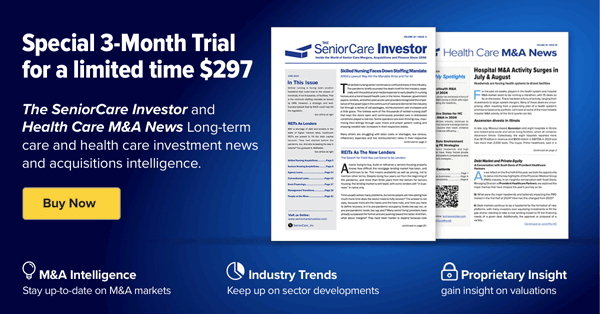It’s been a turbulent earnings season. Although some companies are thriving, inflation, reimbursement changes, labor shortages and other headwinds have hit every organization across the board. Some companies, like American Well Corp (Amwell) (NYSE: AMWL), U.S. Physical Therapy, Inc (USPT) (NYSE: USPH) and Addus HomeCare Corp. (NASDAQ: ADUS), were able to post strong financial and performance results despite the headwinds, while others, like Providence Health & Services (NASDAQ: PRSC), Universal Health Services (NYSE: UHS) and Laboratory Corporation of America Holdings (Labcorp) (NYSE: LH), reported significant losses. We don’t expect these headwinds to disappear anytime soon as market uncertainty continues to linger, so struggling companies must readjust their strategies now if they hope to achieve growth in the fourth and final quarter.
Here are the key headwind takeaways mentioned in the earnings calls and reports of companies across the healthcare spectrum.
Providers Under Significant Stress
Providence reported a $164 million operating loss during the third quarter after already being down $934 million at the year’s halfway mark. Providence’s third-quarter results “showed the ongoing impact of inflation, the national health care labor shortage, delayed reimbursement from payors, global supply chain disruptions and financial market weakness,” according to a press release.
Universal Health Services reported a significant loss in net income, down 16% from $218.4 million ($2.60 per diluted share) reported in Q3:21 to $182.8 million ($2.50 per diluted share) in Q3:22. “There was insufficient revenue growth to offset the accelerated rate of wage increases and other inflationary pressures,” President and CEO Marc Miller told investors during a Q3 earnings call.
Digital Providers See Opportunity Supporting Legacy Providers
“As we see it, economic uncertainty creates both headwinds and tailwinds for us. We know hospital budgets are constrained, and yet the challenges facing providers and payers drive an urgent need to leverage technology to achieve their operational goals. At Amwell, we strive in every conversation to compel prospects and customers that our solutions are the must-have engine to resolve their pain points today and well into the future. Workflows, priorities, and timelines will vary, so customers require a platform that seamlessly enables a digital-first approach now, is scalable, and is also future-ready.” – Dr. Ido Schoenberg, CEO of Amwell
“[The current] environment really requires us to very much focus with our customers on value and ROI. So, when we talk about that, as we stand, as we expand, as we migrate, we really try to understand the business priorities of our customers and find a way that our platform conserve their short-term need. In the case of health system, obviously, the key leaders are staff retention, improving efficiency, and diversifying the revenue and allow them to better compete and increase the top line with payers and other similar trends that relate to the member experience, improving financial and clinical outcomes and creating a much more sticky, meaningful relationship with our customers, whether it’s members or, in some cases, the government.” – Dr. Ido Schoenberg, CEO of Amwell
Companies Seeing Progress from Internal Initiatives
“Across diagnostics and drug development, our margins were negatively impacted by rising labor costs and other inflationary pressures. We are taking cost actions, and we’re focused on improving margins. In addition, LaunchPad savings continue to help offset the impact of near and expected midterm headwinds.” – Adam Schechter, President, CEO and Chairman of Labcorp
LaunchPad is a business process improvement initiative implemented to revamp Labcorp’s operations and systems. Over the next three years, LaunchPad is anticipated to deliver $350 million in savings for the company. The initiative has already proven fruitful in contributing to Labcorp’s third-quarter margin.
Beginning to See Labor Market Soften
“While the clinical recruiting and retention dynamics remain challenging, we are seeing clinical hiring trends start to move in a positive direction. Our overall hiring and turnover trends in personal care have also continued to improve during the third quarter, and we continue to evaluate and invest in enhancing our recruiting and onboarding processes to best position Addus to meet current and expected demand for our services.” – Dirk Allison, Chairman and CEO of Addus HomeCare
“While our third quarter results were impacted by higher labor and other inflation-driven costs, volumes have remained solid, and I am encouraged by some early progress with respect to payer contract negotiations.” – Chris Reading, CEO of USPT


